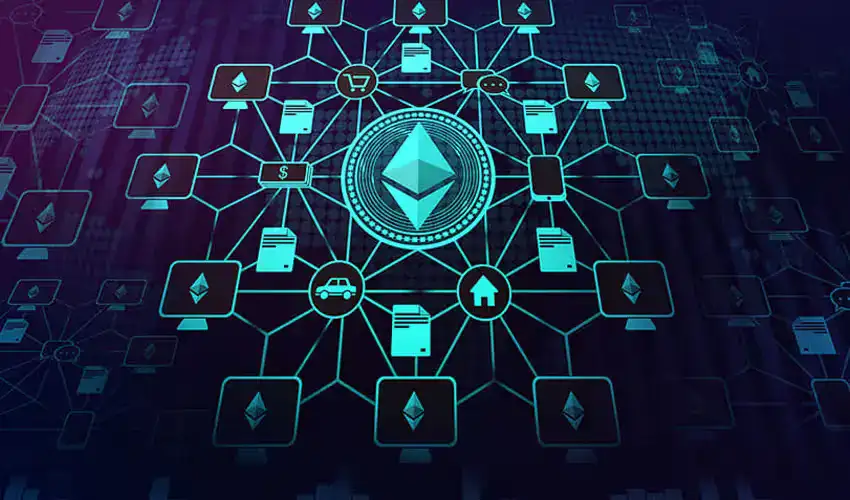The Role of Token Smart Contracts in Blockchain Technology

Blockchain technology has rapidly evolved over the past decade. It has transformed many industries. It does this through its decentralized, secure, and transparent nature. A key element driving this transformation is the concept of token smart contracts. These contracts are key to blockchain ecosystems. They enable many applications, from cryptocurrency transactions to complex DApps. In this article, we will explore the role of token smart contracts in blockchain technology. We will cover their functions and their impact on different sectors.
Understanding Token Smart Contracts
A token smart contract is a self-executing contract. Its terms are written directly into code. This code runs on a blockchain. It ensures the contract is unchangeable and enforces itself. Tokens are digital assets created and managed by smart contracts. They can represent many types of assets. These include cryptocurrencies, loyalty points, or physical assets like real estate.
Smart contracts operate on decentralized blockchains. They do not need intermediaries like banks or legal institutions to validate and enforce the terms. This decentralization reduces costs, increases efficiency, and enhances security.
Key Functions of Token Smart Contracts
- Token Creation and Management: Token smart contracts are mainly used to create and manage tokens. These tokens can be fungible, like cryptocurrencies (e.g., Bitcoin, Ethereum), or non-fungible, like unique digital assets (e.g., NFTs).
- Smart contracts make automated transactions. They execute pre-set conditions without human intervention. For instance, a smart contract can automatically transfer tokens to a user once a payment is confirmed.
- DeFi platforms rely heavily on token smart contracts. They use them to offer financial services like lending, borrowing, and trading. They do this without traditional intermediaries. These contracts ensure transparency and security in financial transactions.
- Governance: In decentralized autonomous organizations (DAOs), token smart contracts are crucial in management. Token holders can vote on proposals and decisions. The smart contract ensures that votes are counted accurately. Outcomes are then implemented automatically.
Impact on Various Sectors
Finance and Banking
The financial sector has adopted blockchain and token smart contracts early. These contracts streamline processes such as cross-border payments, remittances, and securities trading. Traditional financial transactions often involve many go-betweens and long delays. Smart contracts are much faster and cheaper.
Supply Chain Management
Token smart contracts enhance supply chain transparency and efficiency. By tokenizing goods, companies can track products. They can do this through every stage of the supply chain. Smart contracts can automate payments and settlements. They do this once certain conditions are met. They reduce fraud and improve accountability.
Real Estate
In real estate, token smart contracts make property transactions easier. They do this by tokenizing assets and automating ownership transfer. This reduces the need for intermediaries like brokers and lawyers. It cuts transaction costs and times. Additionally, fractional ownership can be enabled. It allows many investors to own a part of a property.
Healthcare
Healthcare systems benefit from the security of blockchain. They also benefit from the immutability of token smart contracts. Patient records can be tokenized. They can be shared securely among healthcare providers. This ensures data integrity and privacy. Smart contracts can also automate insurance claims processing, reducing administrative overheads and fraud.
Challenges and Considerations
Token smart contracts offer many benefits. But, they also have several challenges. These challenges need to be addressed.
- Writing and deploying smart contracts require special knowledge. They are in programming and blockchain. Mistakes in code can lead to vulnerabilities and losses. This has happened in high-profile cases, like the DAO hack in 2016.
- Blockchain networks have scalability issues. These issues can limit the widespread use of token smart contracts. High transaction volumes can lead to network congestion and increased fees.
- Legal and Regulatory Uncertainty: The legal status of smart contracts varies across jurisdictions. Regulations need to change. They should address the special challenges posed by these decentralized contracts.
- Blockchain itself is secure. But, the smart contracts on it can be vulnerable to attacks. This happens if they are not properly coded and audited. Ensuring the security of smart contracts is crucial to preventing exploits.
Future Outlook
The future of token smart contracts in blockchain technology is promising. Blockchain technology is maturing. We expect to see smarter smart contracts. They will enable complex applications in many industries. Layer-2 solutions and interoperability between blockchain networks will address scalability and compatibility. These innovations will drive the adoption of token smart contracts.
Also, new regulations will give clear rules for using smart contracts. This will promote their use in business. More groups see the benefits of decentralized and automated processes. So, the demand for token smart contracts will keep growing.
Conclusion
Token smart contracts are key to blockchain technology. They allow for creating, managing, and automating digital assets. Their impact is clear in many sectors. Despite the challenges, these include finance, supply chain management, real estate, and healthcare. Token smart contracts have huge potential. They can revolutionize traditional processes. Technology and rules are changing. Token smart contracts will surely be crucial. They will shape the future of decentralized and automated systems.
Token smart contracts are powerful. They make businesses and individuals more efficient, transparent, and secure. They pave the way for a fairer and less centralized digital economy.
Zainab Afzal is a senior SEO Consultant and Writer. She has 5+ years of experience in Digital Marketing. After completing his degree in BS computer science, she has worked with different IT companies.




